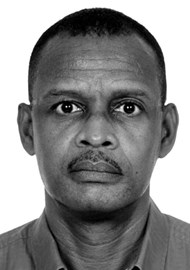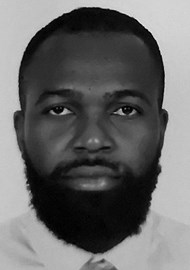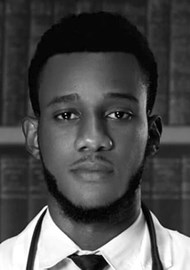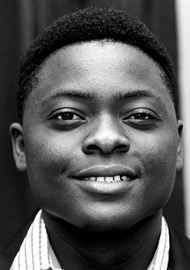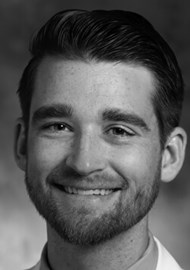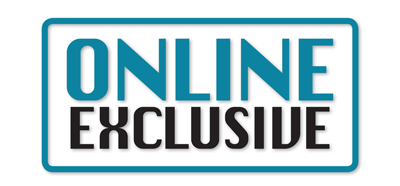
Haiti is a small Caribbean country in which a group of freedom fighters successfully defied Napoleon and the French military. It has faced embargoes, economic isolation, political crises and devastating natural disasters since its independence. Its GDP is 0.01% of the world’s economy. Nowhere is this felt more than in its healthcare, where ENT-related conditions are not a public health priority. This article by a group of Haitian doctors outlines the problem and offers us some solutions where we, the readership, can help.
The shipping container-turned-otolaryngology operating room on the hospital grounds is now gone, making way for an enlarged thoroughfare to speed up the dense Port-au-Prince traffic. At the only otorhinolaryngology-head and neck surgery (OHNS) residency in Haiti, the recent expansion of an adjacent road has curtailed operative capacity and resulted in trainees no longer having access to otologic, rhinologic, or head and neck cancer surgery.
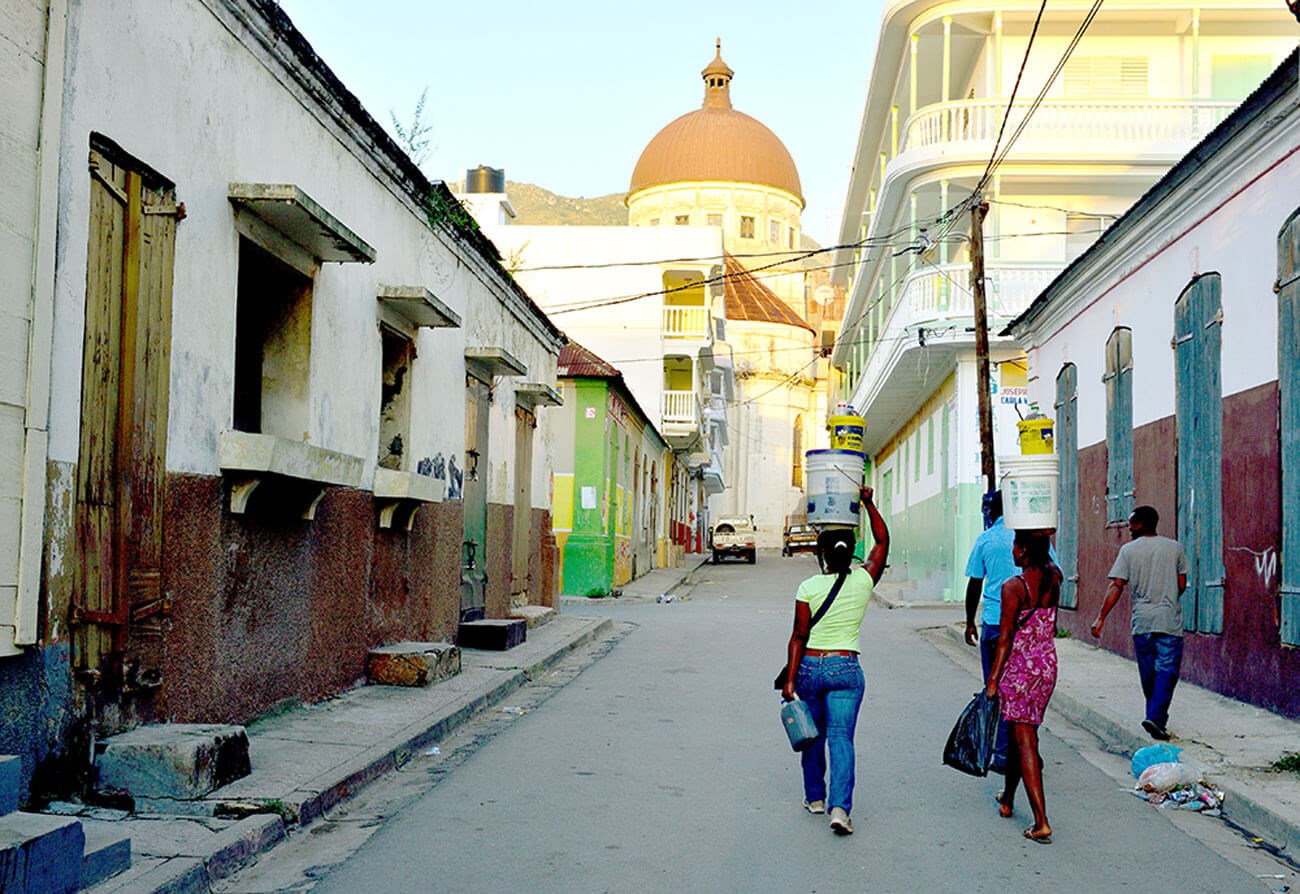
Cap Haitien, Republic of Haiti.
These are critical components of comprehensive OHNS training but, for the past two years, they have been absent from the residency programme at the flagship state hospital in Port-au-Prince, Hôpital de l’Universite d’Etat d’Haiti (HUEH). The nine Haitian otorhinolaryngology trainees, who seek training to provide high-quality care for their patients, are further contending with a political reality that causes significant daily challenges in their training. In addition to limiting their career progression, this situation puts Haitians with head and neck conditions at risk of being unable to access much-needed care, and it highlights a need for the global OHNS community to provide support for Haitian otorhinolaryngology trainees.
Otorhinolaryngology in Haiti
Haiti is a Caribbean nation with a rich cultural heritage that gained its independence through the most successful slave revolution in history. However, Haitians face drastic health disparities, including historically limited care for conditions of the head and neck. Established in 1999, the department of otorhinolaryngology at Hopital de L’Universite d’Etat d’Haiti (State University of Haiti) has made strides in addressing this need. HUEH has maintained the sole training programme for OHNS specialists and serves as the primary provider of OHNS care for Port-au-Prince and the surrounding region [1]. Prior to recent events, the department offered clinical services including general otolaryngology, rhinology, head and neck oncology, and facial trauma. The department also provided training for three residents per year, and there are now approximately 30 fully trained otorhinolaryngologists who provide the bulk of specialist OHNS care in the country.
“Every month that passes is a missed opportunity for the Haitian OHNS residents who know that the lives of Haitians, both now and in years to come, depend on their education”
However, in December 2020, bulldozers arrived unannounced at the grounds of the HUEH otolaryngology department. Sent to enlarge the adjacent street, they swept aside shipping containers that housed the OHNS clinics and operating theatres, destroying essential equipment and eliminating the physical space required for care provision and training. Today, amidst growing economic strife and political violence, the department continues an interminable wait for space in the new public hospital. This facility was originally scheduled for completion in 2017, but it has faced repeated delays, forcing clinicians to make do with the limited infrastructure available in an ageing, overburdened hospital.
Mounting barriers
For almost two years, the HUEH department of otolaryngology has had the equipment and space to provide only a fraction of the clinical and surgical services that were previously available. Now, the deepening political crisis in Haiti presents an additional threat to OHNS care and training at HUEH. Haitians now face immense barriers to simple daily tasks, such as travelling to work (gas has become exceedingly scarce), maintaining a clean space (trash collection has stopped), and feeding themselves (food has become unaffordable).
“While short-term support is beneficial, true accompaniment is essential to strengthen otolaryngology training to the point that Haitians no longer suffer or die from conditions we can treat”
Amidst this turmoil, Haitian OHNS residents must make the most of an already limited education. We estimate that they have access to roughly 20-25% of the previous training curriculum. The breadth and volume of surgical training has been severely reduced, and the routine political unrest often makes weekly didactics impossible due to safety concerns. Every month that passes is a missed opportunity for the Haitian OHNS residents who know that the lives of Haitians, both now and in years to come, depend on their education. The jeopardised training of future otorhinolaryngologists puts hundreds of thousands of Haitians at risk of facing life-threatening and life-altering conditions without access to specialist care. In this reality, more patients will die ‘stupid deaths’, a term coined by Haitians in the country’s Central Plateau [2], from tragedies such as treatable head and neck cancers or emergency airway conditions, or they will be forced to live with the daily challenges associated with treatable hearing loss, facial trauma, and other conditions.
Accompanying Haitian trainees
We have a vision of robust, high-quality OHNS training in Haiti. The international OHNS community can play a critical role in supporting this vision and, by extension, care for over 11 million Haitians. However, the challenges facing Haitian OHNS trainees are immense, and it may take years to strengthen the system to provide robust, full-spectrum training. While short-term support is beneficial, true accompaniment is essential to strengthen otolaryngology training to the point that Haitians no longer suffer or die from conditions we can treat. To achieve this goal, we ask otolaryngologists and institutions around the world to consider entering into accompaniment with Haitian OHNS trainees. The late Dr Paul Farmer, who spent his life in solidarity with Haitian colleagues, defined accompaniment as the following:
“Accompaniment is an elastic term. It has a basic, everyday meaning. To accompany someone is to go somewhere with him or her, to break bread together, to be present on a journey with a beginning and an end. There’s an element of mystery, of openness, of trust, in accompaniment. The companion, the accompagnateur, says, “I’ll go with you and support you on your journey wherever it leads.” [3]
Here we list immediate needs, acknowledging that these will evolve over time. Travel to Haiti is currently inadvisable given the security situation, so the following can be accomplished from wherever you and your institution are located:
A didactic resident training curriculum - The Haitian residents would benefit from a comprehensive didactic curriculum involving topical lectures by educators around the world. We envision weekly lectures, including the opportunity for discussion when possible. Those interested in co-leading or supporting this effort should reach out to the Global Otolaryngology-Head and Neck Surgery Initiative (www.globalohns.org) at globalohns@gmail.org.
Clinical observerships - To provide supplemental subspecialty training for the residents, we ask that you consider hosting a resident for a clinical observership. If this is feasible at your institution, please reach out to Dr Jean-Gilles at boulka71@yahoo.com.
We are grateful for your consideration. Men anpil, chay pa lou (“Many hands make the load lighter”).
References
1. Dupret-Bories A, Jean-Gilles P, Malebranche R, et al. A 19-Year Record of Training Haitian Residents in Otorhinolaryngology and Cervicofacial Surgery. J Surg Educ 2015;72(6):1068-76.
2. Farmer P. Who Lives and Who Dies. Lond Rev Books 2015;37(03).
3. Weigel J (Ed.). Accompaniment as Policy. In: To Repair the World: Paul Farmer Speaks to the Next Generation. 1st ed. USA; University of California Press; 2013:294.


